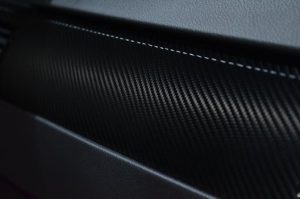Mycelium Insulation: Fungal Tech Reducing Vehicle Emissions.
The world is facing a major crisis due to the high levels of carbon emissions and the resultant climate change. As governments and corporations scramble to find solutions to reduce carbon footprint, researchers are continuously looking towards nature for inspiration. One such innovation is mycelium insulation, a revolutionary technology that uses fungi to reduce vehicle emissions. This eco-friendly alternative to traditional insulation materials is gaining popularity among car manufacturers and environmentalists. In this article, we will dive deep into the world of mycelium insulation and explore how it is helping to reduce vehicle emissions.
The Science Behind Mycelium Insulation
Before we understand how mycelium insulation helps to reduce vehicle emissions, it is essential to understand the science behind it. Mycelium is the vegetative part of fungi and it acts as a natural adhesive. This network of tiny filaments helps fungi to absorb nutrients and spread throughout its surroundings. When combined with organic materials like sawdust or agricultural waste, mycelium forms a lightweight, durable and biodegradable insulation material. It can be molded into any shape, making it ideal for use in vehicles.
Eco-Friendly Alternative
Unlike traditional insulation materials such as plastic or foam, mycelium insulation is completely biodegradable and eco-friendly. It does not produce any harmful emissions and does not require any fossil fuels for production. Mycelium is grown under controlled conditions, making it a sustainable and renewable resource. The use of this insulation material can help to reduce carbon emissions drastically, making it a perfect fit for the needs of today’s society.
Reducing Vehicle Weight
One of the biggest sources of carbon emissions from vehicles is the weight of the vehicle. With mycelium insulation, car manufacturers can significantly reduce the weight of their vehicles without compromising on safety or quality. As this lightweight insulation material is used, the overall weight of the vehicle decreases, resulting in less fuel consumption and lower emissions. This not only helps to reduce carbon footprint but also improves the fuel efficiency of the vehicle, making it a win-win situation.
The Benefits of Mycelium Insulation
The use of mycelium insulation offers many benefits which go beyond just reducing vehicle emissions. Let’s explore some of them in detail:
Improved Air Quality
Mycelium insulation is a natural material that does not release any harmful chemicals into the air. As compared to traditional insulation materials that can release volatile organic compounds (VOCs) or formaldehyde, mycelium insulation helps to improve the air quality inside the vehicle. This is especially vital for people with respiratory issues and allergies, making mycelium insulation an ideal choice for vehicles.
Sound Insulation
The mycelium insulation material is composed of tiny fibers that trap air, providing excellent sound insulation. This means that the noise from the road or engine is significantly reduced, improving the overall driving experience. This also makes it an ideal choice for electric cars, which can sometimes produce higher levels of noise due to the lack of an engine.
Fire and Pest Resistant
Mycelium insulation is naturally fire-resistant and can withstand temperatures up to 200 degrees Celsius. This makes it a much safer alternative as compared to traditional insulation materials that may contain toxic fire retardants. Additionally, mycelium also has anti-microbial properties, which makes it resistant to pests and molds, providing a healthy and safe environment inside the vehicle.
The Future of Mycelium Insulation
With the world becoming increasingly aware of the need to reduce carbon emissions, mycelium insulation is gaining traction as an eco-friendly and sustainable alternative. Several car manufacturers, including Ford and Hyundai, have started to incorporate mycelium insulation into their vehicles, signaling a shift towards greener practices in the automotive industry. Researchers are also constantly finding ways to improve the strength and durability of mycelium insulation, making it a viable option for buildings, packaging, and other industrial applications.
Conclusion
As we strive towards a more sustainable future, innovations like mycelium insulation bring us one step closer. This fungal technology offers a promising solution to reduce vehicle emissions and improve air quality. With its eco-friendly nature and numerous benefits, mycelium insulation is set to revolutionize the automotive industry and pave the way for a greener tomorrow.









